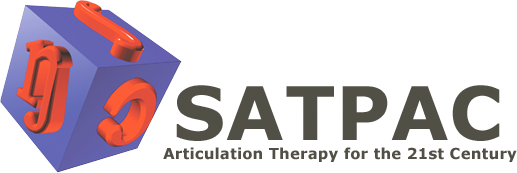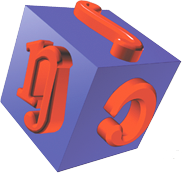Q: What Do You Do in Speech? A: Play Games!
October 1, 2016 5:20 pm
I just finished a series of workshops and part of my presentation has to do with metacognition. The simple definition is being able to think about your thinking. I use it in a big way in speech so that the student can understand what he/she is doing or not doing to remediate speech correctly. So for example, if I have an /r/ student and we are working on the SATPAC facilitating context word EERGA, and the student says EE-A-GA, I will say to the student, “You said EEAGA instead of EERGA, what happened?” Because the student knows that in order to say EERGA correctly, he/she needs to keep the dorsum high for palatal constriction, move the tongue back on the top teeth and keep the tongue wide, he/she analyzes what happened. I will frequently get the response, “My tongue dropped.” which is probably correct. I ask the student to try EERGA again and it is usually a better production.
This metacognition is really helpful to the student and can be applied to all aspects of the student’s life-not just in speech. In talking to kids and adults I know who have completed speech therapy, they rarely are aware of what they did to remediate their issues. It is as if we as SLPs did something magical to them and they were fixed. By using this metacognitive approach, it shifts the responsibility to the student and when they finish, they also get all the praise; “You learned what you needed to do and you did it-congratulations!”
Which brings me to a conversation that I will have with my students at times. I’ll ask what they are working on and what they need to do to say the sound correctly. I expect my students to know this information. When I get a new student to my school from another SLP, I always start there; “What are you working on? and the most frequent response I get is: I DON’T KNOW. I then ask what they do in speech and the most frequent response I get is (you guessed it): PLAY GAMES.
Needless to say, this is not a very positive reflection upon us as professionals.
NEXT NEWSLETTER: How to Appropriately Incorporate Fun into Therapy While Keeping the Focus on Speech.
Stephen Sacks
SATPAC Speech
P.S. If you noticed that my picture changed, it’s because today is my dog Remy’s 6th birthday!
Our new website is up! It looks just like the old one but there is a world of difference in its functionality. The free CEUs are now back too.
I got a recent inquiry asking if I had any plans to come to NY. Because I live in Central California and still work part-time, it’s difficult unless I get a specific offer which can then be arranged. This recently happened with a group from the Washington, DC area.
However, I do have upcoming workshops in Tucson January 19 and Phoenix January 20 as well as Anaheim on February 4. Because I want SLPs from all over to use and understand my program, I have a .6 CEU ASHA webinar that is basically the same as my live presentations. However, unlike my live presentations, the webinar is less expensive. You can get the webinar and the iSATPAC Program which typically sells for $199, both for $150. Go to the new SATPAC website for details. Here is the link: https://satpac.com/workshops/webinar
I am available to present for professional develop both live and via live webinars. Contact me [email protected] for more information.
The are two 3 hr. webinars (Using the SATPAC Approach with Highly Unintelligible Middle School Students
and The 7 Stages of Phoneme Development) available for viewing. As always, you can earn ASHA CEUs. Each webinar is $49 or $79 for both.
Also, I’ve developed a referral incentive program for my online webinar for SATPAC owners. Email me [email protected] if you would like the details.



